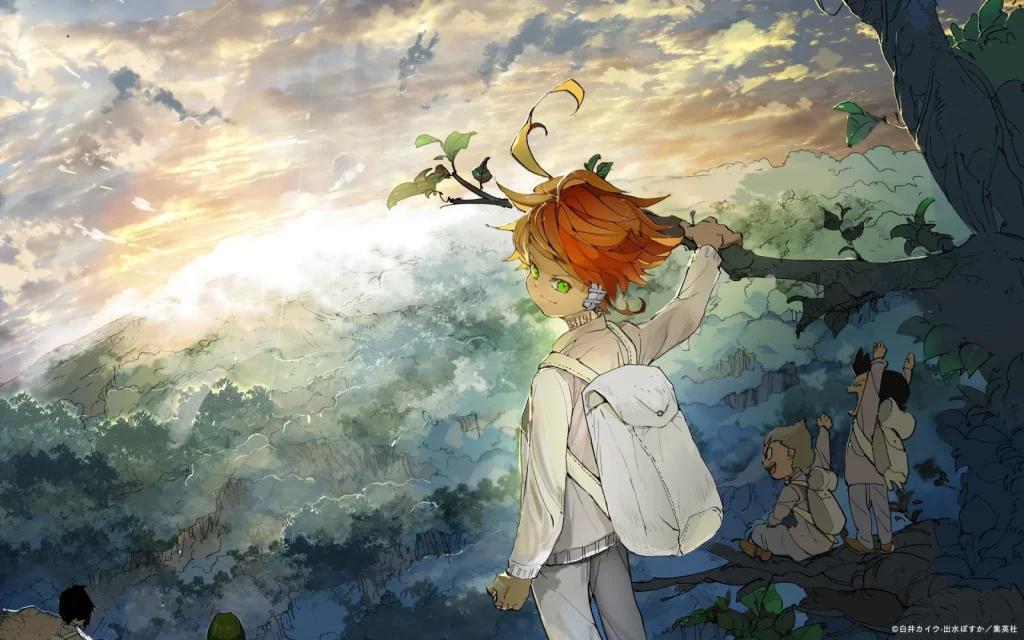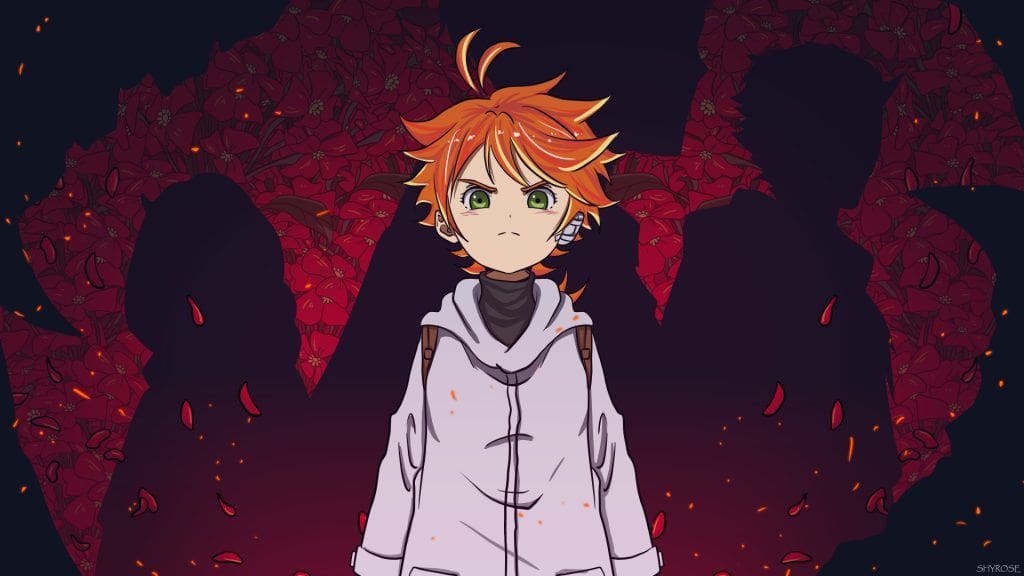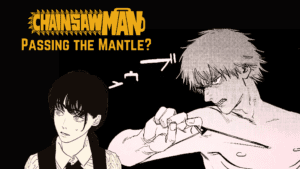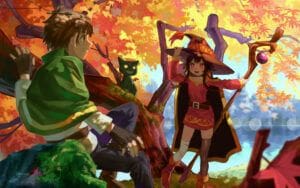Okay, pulling inspiration from real-life incidents isn’t a novel concept in manga. It’s a ploy plenty of mangakas have taken advantage of over the years. Maybe they might not base the entire plot on it, but they could create an arc inspired by it. Just look at what Kuroshitsuji did with its Luxury Liner arc, a direct reference to the Titanic incident of the 1920s. Similarly, fans wonder if there is any truth to the twisted tale of The Promised Neverland.
Thankfully, The Promised Neverland is not based on a real story, but I can see why people are getting confused. The creators, a duo team made up of Kaiu Shirai and Posuka Demizu, have talked before about the subject matter they wanted to explore, which was a mother-daughter dynamic set-in horror. They were inspired by franchises such as Death Note and Assassination Classroom for the wild chase aspect of it.
But, hey, plenty of dark stuff has happened in history that you could relate to some anime. Monster is a deep dive into the mindset of a serial killer, and Death Note follows how power can end up corrupting even the most virtuous of ideals. There is a lot of horror in real life that can easily overpower some of the most unsettling stories you can think up. And it’s interesting to explore those tales through manga and anime.
But how does The Promised Neverland take something as maternal and nurturing as parenthood and turn it into the darkest murder mystery? How do you make a mother figure terrifying beyond compare? That’s what we’re here to discuss in Lore Analysis – where we take a deep dive into the plot of certain franchises and see where they will take us. Today, we discuss The Promised Neverland and the inherent horror of growing up in a dysfunctional home. Yes, I’m serious. Let’s go.
Table of Contents
The Promised Neverland: An Unexpected Hit From Shonen Jump?

When The Promised Neverland first came out, no one expected it to get as big as it did.
It was the product of two relatively unknown people in the industry, who met while working on various manga one shots such as Poppy’s Wish. It came out at a time when a barrage of manga pilots were being released on Shonen Jump, with absolutely 0 fanfare. And the genre was just not popular.
And yet, The Promised Neverland just stood out, despite being a newly debuted Mystery-Thriller in a publication known for launching some of the biggest Shonen-Action works. It was creepy, harrowing yet still exciting. And clearly, something about it resonated with a lot of readers. Which is a little bit unsettling, considering the subject matter. But this is where that dynamic we talked about comes in.
An Exaggerated Take On A Dysfunctional Mother-Daughter Relationship?

Okay, this will sound pretty dramatic, but the writers themselves agree with it so, yeah. The Promised Neverland is an introspection on a very twisted version of a mother and a daughter interacting. This is the main reason they chose a female protagonist, after all.
No parent is perfect, just like no child is. And even the purest of relationships can be rife with abuse and toxicity. That’s the case with the main antagonist of The Promised Neverland being someone who is referred to as Mama. And the main character is the eldest girl in a group of orphans named Emma, who figured out their little sanctuary was anything but.
The point of contention between Mama and Emma is almost so overt, yet it becomes subtext. It’s a strange way of commenting on how elder daughters have to grow up too fast to counteract their neglective mothers. All for the sake of helping their younger siblings. Emma has to take the role of a provider, a guiding light, much like a mother is to her children. Because Mama couldn’t be that figure for them if she’s out to hurt them.
It’s horrifying because, well, The Promised Neverland might exaggerate that dynamic, but it’s something that does actually happen. In that way, it’s not so much based on a true story, as it is on a phenomenon that takes place in toxic households.
After all, what can be scarier than real life?


















What do you think?
It is nice to know your opinion. Leave a comment.